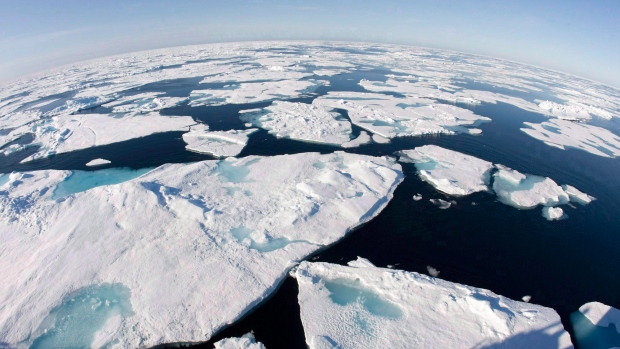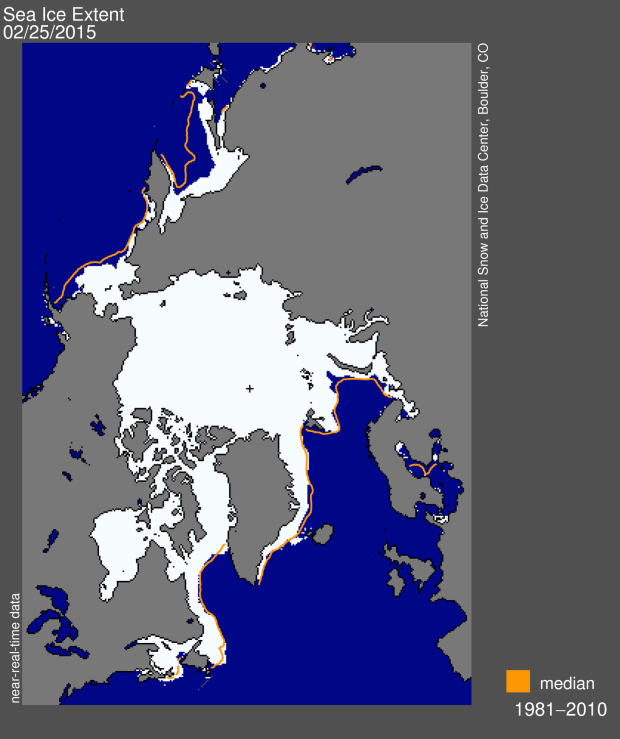Arctic sea ice hits new record low

The extent of Arctic sea ice has set a new record low.
The U.S.-based National Snow and Ice Data Center says the ice appears to have reached its maximum spread for the winter.
It says this year’s ice is about seven per cent below the 30-year average, and about one per cent below the previous record low set in 2011.
Sea ice has been shrinking at an average rate of about five per cent each decade.
The centre says there’s still a chance the ice could grow, but the monitoring agency believes the melting season has begun.
The changes are already distorting fragile Arctic food webs, altering the timing of crucial algae blooms that kickstart the entire ecosystem from birds to bowheads.
Some scientists link vanishing sea ice with abnormal weather in the south.
They say a shrinking temperature differential between the Arctic and the middle of the continent is slowing the jet stream, causing it to drift into lower latitudes.
Julienne Stroeve of the National Snow and Ice Data Center says the jury is still out on that theory.




